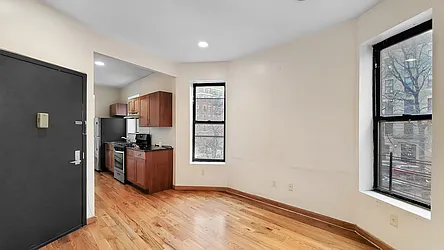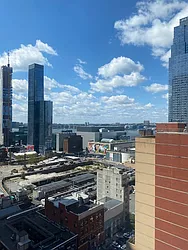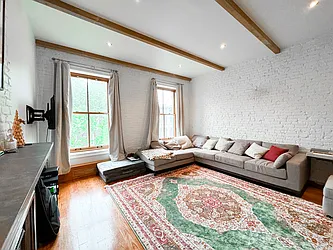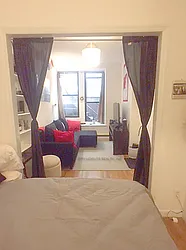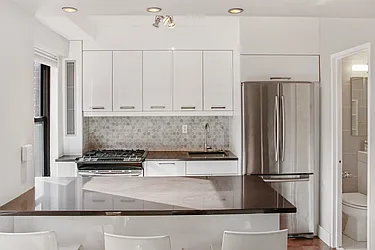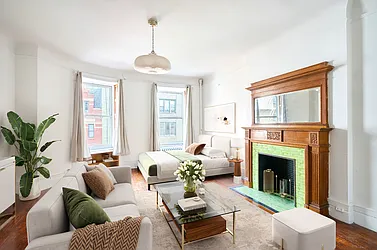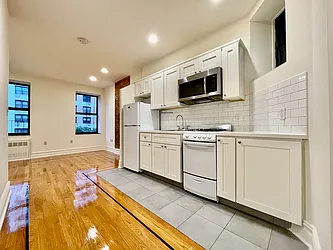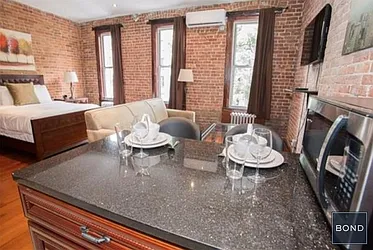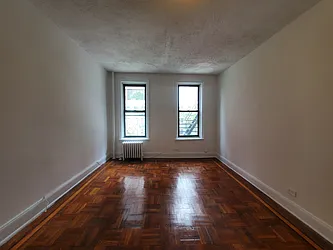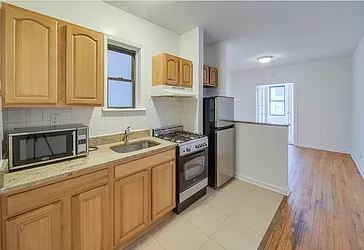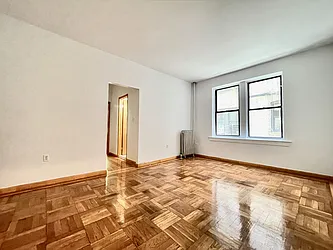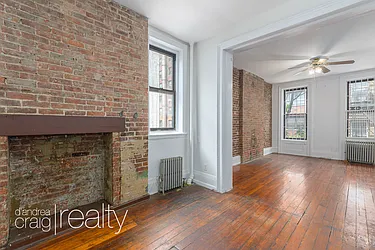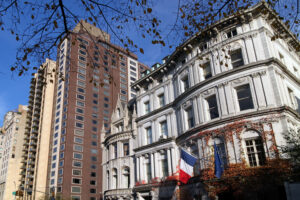
In a smoke-free building, sparking one in your apartment is not an option. (Harry Fodor / EyeEm / Getty Images)
When searching for a place to live, most of us prioritize things like price, neighborhood, proximity to the subway, and preferred schools. But a building’s smoking policy should probably be on our list of considerations, too. While New Yorkers have gotten used to smoking bans in public places like bars and restaurants, such restrictions on the home are relatively new — and they’re growing. Here’s what those rules really mean.
What Current NYC Law Requires
Last August, Local Law 147 took effect, requiring multifamily residential buildings with three or more units to create a policy on smoking and to disclose that policy with current and future tenants. This policy must be given to tenants in writing or posted in a visible location, like the lobby, and should cover where smoking is and is not permitted both indoors and outdoors. The law requires all tenants to be notified annually of the smoking policy, and again if it changes.
But Local Law 147 is not a citywide ban on smoking in buildings. It simply requires buildings to set a policy on where residents can smoke, and to make that policy public.
The Rise of Smoke-Free Buildings in NYC
While Local Law 147 doesn’t require buildings to be smoke-free, many buildings have become so, prohibiting smoking anywhere on the premises, including in individual residences. Developers like Pan Am Equities and Related were at the forefront of the smoke-free residence movement.
“What happens is somebody gets burned once, and then they become savvy,” explains Christine McAndrews, of Mirador Real Estate. She points out that people don’t typically seek out a smoke-free building unless they’ve had a bad experience with secondhand smoke seeping into their apartment. Pan Am exclusively lists its properties with Mirador.
Experts say that renters tend to be less concerned about smoking policies, since they have more freedom to pick up and leave. For buyers, the issue holds more weight. New Yorkers with children, those with respiratory issues, and especially savvy shoppers tend to be more vocal about a smoke-free policy.
“I find that it’s easier to make a consideration for a year,” says Jordan March, Mirador’s director of sales. “Anything will be weighted more when it comes to purchasing.”
So does a smoking ban affect a unit’s value?
“It’s hard to quantify a particular drop in price for homes that allow smoking, but it may affect how quickly a unit sells,” March explains. It also may affect the neighbors. McAndrews says she had a previous client who was willing to sell her apartment at a loss because her neighbor smoked and the stench became unbearable.
The U.S. Department of Housing and Urban Development has also jumped on the smoke-free trend, requiring all public housing to be smoke-free. As of July 2018, smoking is banned in any indoor area of public housing, including in individual apartments and within 25 feet of NYC Housing Authority buildings.
Smoke-Free Manhattan Apartments Under $3,000 Article continues below
Can You Get Evicted for Smoking in a Smoke-Free Building?
The short answer to this is yes — but enforcement is tricky. “I’m not aware of any court cases where anyone has been evicted yet,” says real estate attorney John Crane. “If you voluntarily sign the lease agreement, you are agreeing to comply with the rules of the building. Then a landlord could bring an action against you.”
If secondhand smoke becomes a nuisance, it could be considered a violation of the warranty of habitability. Still, Crane notes that eviction for smoking is a very severe penalty.
In a smoke-free building, the rules are written into the lease, while, for condos and co-ops, they’re written into the bylaws. “It’s a little trickier with condos and co-ops, because people own their home or are shareholders,” says McAndrews. She notes that any language written into the bylaws and guidelines should be as specific as possible, to account for new technologies like electronic cigarettes.
And what about smoking something other than tobacco in an NYC apartment?
“Many people think pot doesn’t count,” McAndrews says. “But no smoking means no smoking anything.”
Critics of smoking bans say the city has struggled to come up with an effective way to enforce these policies. But even if that’s true, it’s not uncommon for residents to tattle on one another.
McAndrews also notes that a building may not have to kick you out to enforce the rules. Fellow residents can resort to good old-fashioned peer pressure. “It’s really uncomfortable for them,” McAndrew says of those who choose to spark up in a building where it’s prohibited.
“They often get shamed by neighbors who will continue to complain.”
—
Inspired to find your next place in New York? Whether you’re looking to rent or to buy, search NYC apartments on StreetEasy.

